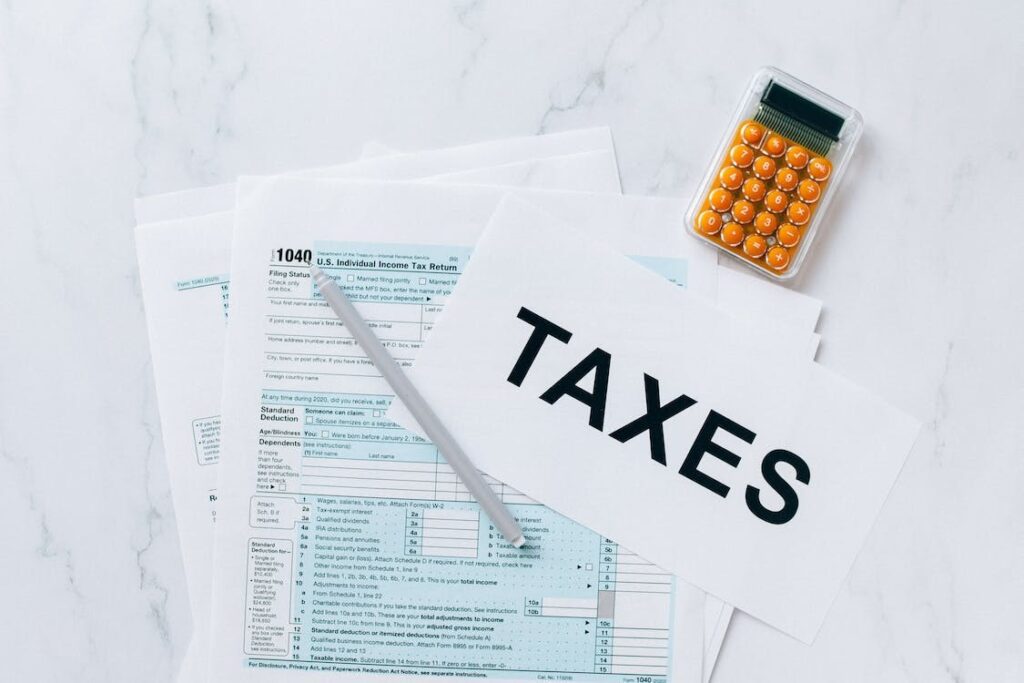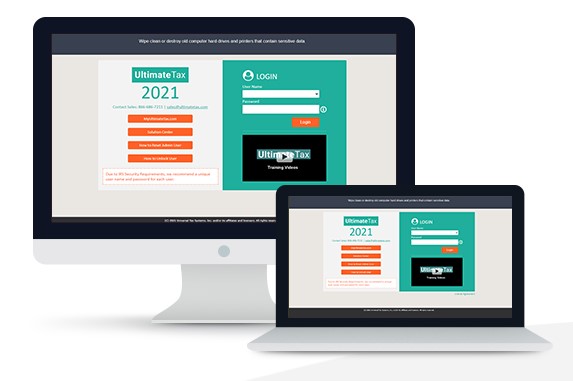The number of tax exemptions you claim on your W-4 form significantly affects the amount of federal income tax withheld from your paycheck. If you claim fewer exemptions, more taxes will be withheld, and vice versa.
However, claiming too many or too few exemptions can result in an unpleasant surprise come tax season. Therefore, it is essential to determine the right number of tax exemptions to claim based on your financial situation so you don’t end up owing the Internal Revenue Service or receiving a lower tax refund than expected.
By doing so, you can maximize your take-home pay while fulfilling your tax obligations accurately. This is why we have compiled this helpful guide. For more information about understanding tax exemptions, continue reading.
Understanding Tax Exemptions
Tax exemptions are a type of tax benefit that can reduce a taxpayer’s overall taxable income, resulting in a lower tax bill. Unlike tax deductions, which reduce the amount of income subject to taxation, tax exemptions allow you to exclude certain types of income from your taxable income altogether.
Below, we will review some of the various tax exemptions.
Types of Tax Exemptions
Tax exemptions are an important way of reducing the tax burden for taxpayers. They are designed to provide financial relief to people who meet certain criteria and can vary significantly depending on a person’s individual circumstances.
Common types of tax exemptions include the following:
- Personal exemptions
- Dependent exemptions
- Exemptions for the blind or disabled
- Exemptions for seniors
- Exemptions for veterans
- Educational exemptions
Eligibility Criteria for Claiming Tax Exemptions
To be eligible to claim a tax exemption, an individual must meet certain criteria set by the Internal Revenue Service (IRS). Generally, exemptions are applicable to dependents like children and elderly relatives who live with taxpayers and income qualifiers may apply.
For example, if a taxpayer earns less than a certain amount of annual income, the taxpayer may qualify for certain deductions. Additionally, individuals can consider deductions for charitable contributions or medical expenses. Taxpayers can also benefit from certain credits available like education credits or foreign tax credits, depending on their circumstances.
Factors to Consider When Determining the Number of Tax Exemptions to Claim
When it comes to managing your taxes efficiently, understanding how allowances affect your take-home pay is key. The more allowances you claim, the less tax will be taken out of your paycheck – meaning more of your hard-earned money stays in your pocket.
However, if you claim fewer allowances, it means more tax will be taken out each payday, reducing your take-home wages.
So, how many tax exemptions should you claim? By knowing the impact that allowances have on your paycheck can help you make smart decisions when filing taxes and managing finances.
Filing Status
A taxpayer’s filing status for any given tax year is primarily determined by their marital status as of December 31st. For married couples, options may include filing jointly or separately, depending on the situation. Those considered unmarried on December 31st have the choice to file as single, head of household, or qualifying widow(er) with a dependent child.

In certain cases, taxpayers may be able to choose between multiple filing statuses which offer different tax liability benefits; therefore, it is important to carefully consider each option before submitting a return. Depending upon individual circumstances, there may also be advantages or disadvantages to filing jointly with a spouse or filing separately.
Be sure to research all available options in order to make the best decision for your particular situation.
Dependents
To be considered a dependent, the person must meet certain criteria. The Internal Revenue Service (IRS) states that the individual must meet all of the following characteristics: they must be a U.S. citizen, resident alien, U.S. national, or resident of Canada or Mexico; they must not provide more than half their own support during the tax year; and they must be related to the taxpayer, such as a child, stepchild, sibling, or parent.
Furthermore, for most dependent-related credits and deductions, the person cannot have gross income in excess of $4,200 for the tax year.
Once it is established that an individual qualifies as a dependent for tax purposes, then other tests must be applied to determine which credits and deductions are available because of the dependent status.
Income Level
Taxpayers’ income level is a major factor when it comes to the amount of tax exemptions they are eligible for. Generally, those with higher incomes will be taxed at a higher rate, while lower-income individuals are able to receive more generous deductions and credits.
For example, taxpayers in the highest tax bracket may be able to claim up to $24,000 in deductions and exemptions on their federal taxes every year, while those in the lowest income category are likely to have access only to the standard deduction and limited credits.
Personal Preferences
Tax preference items can be a valuable source of income for many taxpayers, as they are typically received tax-free. However, if the value of these items exceed 40% of their alternative minimum tax (AMT) income, then it may trigger the AMT.
Examples of such items include:
- Interest on private activity municipal-bonds
- Qualifying exclusions for small business stock
- Excess intangible drilling costs for oil and gas.
Depending on an individual’s financial situation and income level, these items can have a significant impact on their taxes and should be carefully evaluated before claiming them as tax preference items.

Calculating the Number of Tax Exemptions to Claim
The personalized allowances worksheet on your W4 form is a great tool to help accurately calculate how much of your salary should be withheld for taxes. For couples filing jointly, or those with multiple jobs, Parts 2 and 4 of the W4 form allow you to adjust withholding amounts accordingly by accounting for additional income sources.
Part 4 also offers a helpful option to allow your employer to automatically withhold additional money from paychecks based on your specified information.
Using IRS Worksheets and Online Calculators
This free calculator tool from the IRS is designed to help you estimate your federal income tax withholding. It allows you to see how different amounts of withholding affect your take-home pay, refund or taxes due. You can customize your estimated withholding amount and get accurate results based on the information you provide. Whether you want to maximize your refund or minimize taxes due, this calculator can be a valuable resource when choosing an appropriate withholding amount.
All you will need to utilize this online tool are:
- Paystubs for all jobs you and your spouse, if applicable
- Other income information such as self-employment income or investments
- Your most recent tax return
For those with more complex tax situations, such as alternative minimum tax, long-term capital gains, or qualified dividends, it is important to take the extra step of reviewing Publication 505.
This publication provides details on how to calculate your tax withholding and estimated taxes accurately.
Additionally, if you have nonresident alien status, Notice 1392 should be consulted for supplemental instructions on Form W-4 filing.
Another great resource are tax deduction worksheets. A tax deduction worksheet is an important tool for individuals and businesses alike to use for filing their annual taxes. The purpose of this worksheet is to provide a place to list all applicable deductions that the taxpayer can claim during the year.
Once completed, the worksheet can be used to lower your taxes due or receive a larger refund from the government. It is important to keep all receipts associated with deductions taken on this sheet in order to support your claims on your tax return.

Examples of Calculations for Different Scenarios
As an example, we will use a man named John. John is a retiree who has just finished his last paycheck. He will now begin to receive income from his annuity, government benefits and traditional IRA withdrawals.
Although he is now retired, John will still be obligated to pay federal income taxes on all of his retirement income, and he can have the taxes withheld from each source. This way, he doesn’t have to worry about the complexity of filing taxes or having an unexpected tax bill at the end of the year.
By having the federal income taxes withheld from each source he can guarantee that he won’t owe anything or be subject to penalties when it comes time to file his annual return.
Consequences of Claiming the Wrong Number of Tax Exemptions
Tax evasion is a serious offense, and claiming false deductions to reduce your tax liabilities is a type of fraud that can have drastic legal consequences. The Internal Revenue Service takes this crime seriously, and any attempt to maliciously inflate the number of dependents listed on a return can result in harsh penalties if the taxpayer is found guilty.
To be charged with this type of fraud, however, it must be proven that the taxpayer knowingly and intentionally attempted to deceive the IRS for financial gain. If convicted, individuals may face jail time and hefty fines, both of which could haunt them for years after their conviction.
Tips for Choosing the Right Number of Tax Exemptions to Claim
As a server, barista, home cleaner, or another job that collects tips, it is important to remember that these tips are considered taxable income, and withholding taxes must be taken into consideration.
If you need assistance with understanding withholding taxes or other related issues as a US resident, there are a variety of helpful resources available such as calculators and tax professionals.
Listed below are some quality resources available to you when it comes to filling out your taxes.
Consult With a Tax Professional
A tax professional can help you maximize your deductions and lower your chances of an audit or IRS questioning. By reviewing your past returns, they can help identify any missed deductions and amend them accordingly.
This not only helps ensure that you’re getting the most out of your return, but also reduces the possibility of having to deal with an audit or answer difficult questions from the IRS. Tax professionals are well-versed in dealing with the IRS and know the best ways to handle such situations.

Review Tax Exemptions
By being proactive and researching all possible tax exemptions, you will be able to save money while also avoiding substantial penalties and interest charges on what would otherwise be owed. It’s important to research which tax exemptions you qualify for and take advantage of them when filing your taxes in order to maximize your savings.
Tax exemptions are an essential part of filing your tax return and can save you a significant amount of money. Depending on the tax system that you are operating within, there may be a variety of exemptions available to you. These could include deductions for charitable donations, deductions for medical expenses, or exemptions related to certain types of income.
Additionally, if you don’t take advantage of all the tax exemptions that are available to you, then it may result in an increased liability on your taxes.
Make Adjustments to Exemptions
The Internal Revenue Code grants taxpayers the ability to reduce their taxable income via personal and dependent exemptions. These deductions are incredibly beneficial as they efficiently lower the amount of tax owed for the year.
Depending on your family size and combination, you can claim up to four exemptions, equating to a $4,050 reduction from your gross income per exemption.
Additionally, taking advantage of credits such as the Earned Income Credit or Child Tax Credit can also help lessen the burden of taxes owed.

Let’s Take On Your Taxes, Together!
Ultimate Tax is here to provide you with comprehensive tax services and answers to all your questions or tax form needs. Our experienced team of professionals have the expertise and knowledge to assist you in any tax-related tasks, from filing taxes to planning for the future. Contact us today to get started on the path toward financial success!





